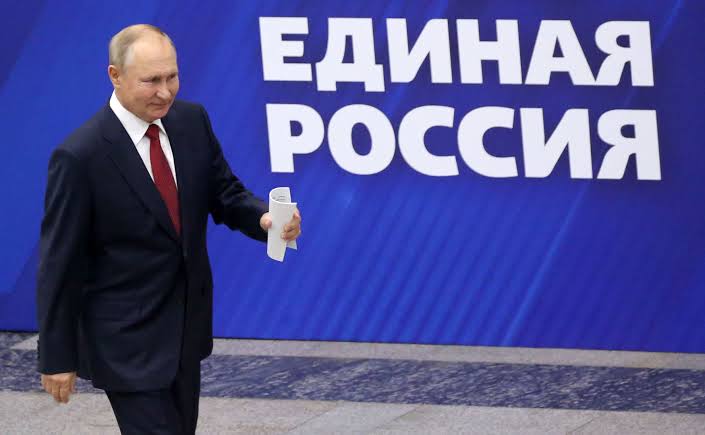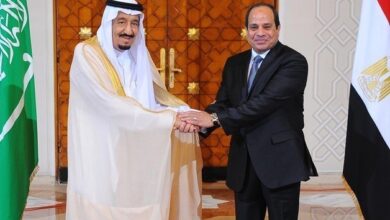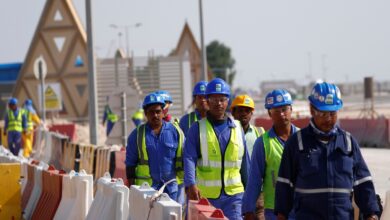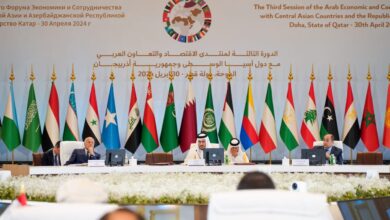
Written by: Ahmed Mustafa
Egyptian economist and international youth trainer.. Head of the Asia Center for Studies and Translation
Why are the Russian presidential elections so important?
The presidential elections in Russia are of paramount importance not only for the country itself, but also for the international community. Russia is a major global player, with a vast territory and an important role in global politics. The outcome of these elections will have far-reaching effects on the country’s direction, its relations with other countries, and the balance of power on the global stage. In addition, these elections hold great significance for the Russian people who have been living under the rule of President Vladimir Putin for nearly two decades.
The role of the president in Russia has enormous power and influence. The president has control not only over domestic affairs, but also over foreign policy, military strategy, and economic decisions. This makes the election outcome crucial for the country’s future. As Putin’s current term ends, the question arises whether he will continue in power or whether there will be a new leader in the Kremlin. This state of uncertainty has raised anticipation and anxiety among the Russian people and received international attention.
Moreover, Russia has faced a series of challenges in recent years that have strained its relations with the West. From the annexation of Crimea in 2014 to allegations of interference in the US elections in 2016, as well as the 2022 special military operation in Ukraine, Russia’s actions have caused a major rift between the country and other world powers. The outcome of the presidential election will determine whether Russia will continue on its current path or take steps toward improving its relations with the international community.
Moreover, these elections are important because they will showcase the state of democracy in Russia. Critics accused Putin of suppressing the opposition and manipulating the elections to his advantage. The exclusion of many opposition candidates from the ballot raised concerns about the integrity and transparency of the electoral process. The level of participation and election results will be a key indicator of the state of democracy in Russia.
More broadly, the results of the presidential elections in Russia will also have an impact on the balance of power in the world. Russia’s close partnerships with countries such as China, Iran, North Korea, and Syria put it in a position to challenge the hegemony of the United States and its allies. Changes in leadership or policies in Russia could change the dynamics of these relations, and have major implications for the global order.
How effective is Russian election coverage?
The 2024 Russian presidential elections represent a crucial event in the country’s political landscape. In covering this important event, it is essential that we approach the topic with a comprehensive understanding of the political dynamics in Russia and the consequences of these elections. This requires gaining insight into the complexities of the Russian political system, analyzing potential candidates, and realizing the importance of these elections in shaping Russia’s future path.
To effectively cover the 2024 Russian presidential election, it is essential to have a detailed understanding of the country’s political landscape. Russia operates under a semi-presidential system, and power is shared between the president and the prime minister. The roles and responsibilities of these positions, as well as the influence of other political institutions, such as the Duma and the Federation Council, must be explored very carefully. Understanding the Russian political framework will enable one to understand the implications of the upcoming elections and recognize potential avenues for power consolidation or political transformation.
Another important aspect of comprehensive coverage of the 2024 Russian presidential elections is the analysis of potential candidates. It is necessary to identify the main figures and political parties involved, their ideologies, and their bases of support. Assessing candidates’ records, their policy proposals, and their popularity among the general public in Russia can provide valuable information about the likely outcomes of the election. It is no less important to pay attention to any political and social movements that may affect these elections. Attending rallies, interviewing political experts, and analyzing public sentiment can contribute to understanding the underlying currents driving this electoral process.
Coverage of the 2024 Russian presidential election should also reflect the broader importance of this event. Russia has witnessed major political and economic transformations in recent years, and the election of a new president will certainly shape the direction the country takes. Given Russia’s global standing and its relationships with other major powers, the consequences of this election extend far beyond its borders. Analyzing the candidates’ positions on international issues, such as foreign policy, global alliances, and regional conflicts, will allow for a more comprehensive understanding of Russia’s future trajectories and its potential influence on the world stage.
The alleged constitutional amendments provoked what is wrongly called the international community/the West
The constitutional amendments witnessed in the Russian presidential elections in 2020 were not just a routine political event, but a pivotal moment in the country’s history. While those constitutional amendments that were proposed and implemented radically changed the way the Russian government operates. These amendments were introduced by President Vladimir Putin, who has been in power since 2012, and were considered a step to strengthen his grip on power and perhaps pave the way for him to remain in power for years to come.
One of the most important changes brought about by the constitutional amendments is the extension of the presidential term. Previously, the Russian Constitution limited the president’s term to two consecutive terms, with each term lasting six years.
In the new term, the term limit has been reset, allowing Putin to run for two additional six-year terms. The move sparked criticism from opposition groups who accused Putin of using his power to maintain his grip on the Russian political system.
Another change that raised concerns among critics was the expansion of the power of the Russian State Council. The Council of State, previously an advisory body, was appointed as the main decision-making body with the power to propose and approve legislation. This may effectively weaken the role of Parliament and consolidate more powers in the hands of the executive branch, according to the West. The West/society viewed this move as a deliberate attempt by Putin to centralize power and limit any potential challenges from opposition forces.
The amendments also included a clause aimed at protecting traditional family values and clearly defining marriage between a man and a woman. The move was heavily criticized by gay rights activists, who saw it as a step backwards for the country in terms of human rights and inclusivity. This ruling sparked widespread protests and condemnations from the international community.
In addition, the constitutional amendments also granted immunity to former presidents, ensuring that they will not be tried for any crimes they committed during their time in office. This was seen as a safeguard for Putin, who may face consequences for his actions once he leaves office. Critics viewed this as a clear attempt to protect Putin from any accountability for his decisions and actions while in power.
Despite widespread criticism and protests, the constitutional amendments were approved by a majority of voters in a national referendum held in July 2020. However, these results were met with skepticism, with reports of voter fraud and coercion by the government to ensure a positive outcome. This raised further doubts about the legitimacy of the elections and the level of democracy in Russia.
The 2024 Russian presidential elections and their impact on the global economy
The next Russian presidential election in 2024 is a highly anticipated event that will undoubtedly have significant impacts on the global economy. Russia has long been an influential player in the global financial market, thanks to its vast oil and gas reserves and strategic geographical location. As such, the election results will be closely watched by economists and investors around the world.
One of the key factors that will determine the impact of the Russian presidential election on the global economy is the candidate who will ultimately be chosen to lead the country. If current President Vladimir Putin decides to run for another term, there will likely be minor changes in economic policies. However, if a new candidate takes office, there is potential for a shift in Russia’s economic trajectory.
The second factor that will affect the global economy is the level of political stability in Russia after the elections. Thanks to political stability, market volatility has decreased, and there are foreign investors, even from the West, entering the Russian market, either directly or indirectly. This, in turn, increases the stability of the global economy, especially for countries that have strong economic relations with Russia.
The Russian government plays a vital role in the global energy market, as it is one of the largest exporters of oil and natural gas in the world. Any changes in leadership or policies could affect its production and exports, leading to price fluctuations in the global energy market. This, in turn, could have ripple effects on other sectors of the economy, such as transportation and manufacturing, which rely heavily on energy resources.
Moreover, Russia’s relations with other countries, especially its geopolitical competitors, have a significant impact on the global economy. Tensions between Russia and the United States, in particular, have had far-reaching economic consequences, with both countries imposing sanctions on the other. The election results could either ease tensions or exacerbate them, with potential consequences for the global economy.
Moreover, the Russian economy also relies heavily on its trade relations with other countries, such as China and European Union countries. The election results could affect these trade agreements and have consequences for global trade patterns and economic growth.
The 2024 Russian presidential elections and their impact on global culture
The upcoming 2024 Russian presidential elections are being closely watched not only within the country but also by the international community. This is because the results of these elections will have a major impact on global culture. Russia, as a major global power and a major player in international affairs, has significant influence on global culture through its policies, actions, and leadership. The election of the Russian president in 2024 will determine the future direction of the country, both domestically and internationally, and will have ripple effects on global culture.
One of the main areas in which the Russian presidential election will impact global culture is in the area of media and freedom of expression. The West, with a double standard, claims that the current Russian government imposes heavy censorship on the media, with many independent media outlets having been closed or facing severe censorship. We have previously said that Russia is naturally a country with diverse cultures and ethnicities, and the existence and respect for this diversity that President Putin insists on is the greatest criterion for freedom of expression. Russia has given Russian Muslims many rights and allows foreigners to work and study, including Africans, Arabs, Latins, and others, for example.
There are also legal articles that criminalize racism, such as (Article 282) of the Russian Criminal Code. These are materials that may not be available in Western European countries and the United States.




